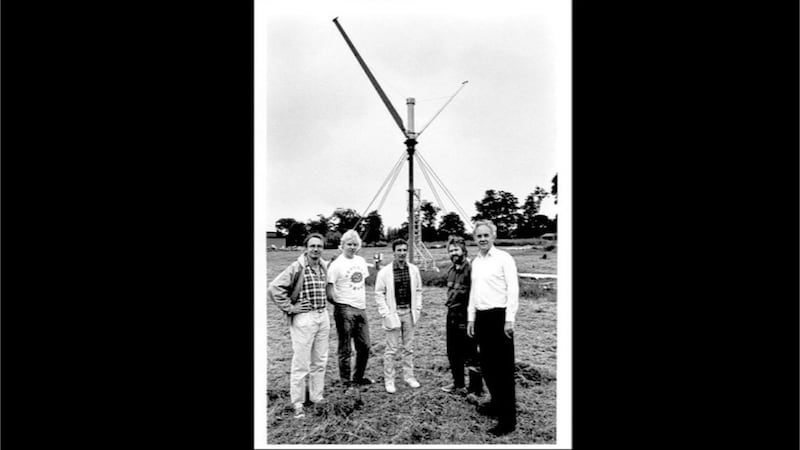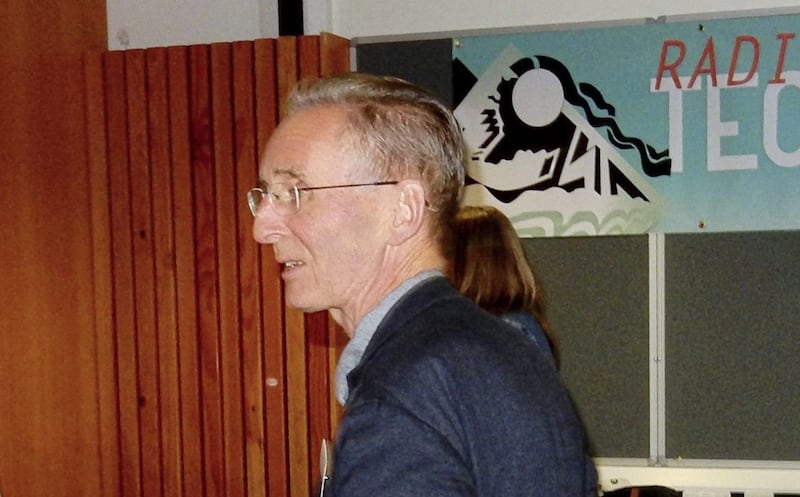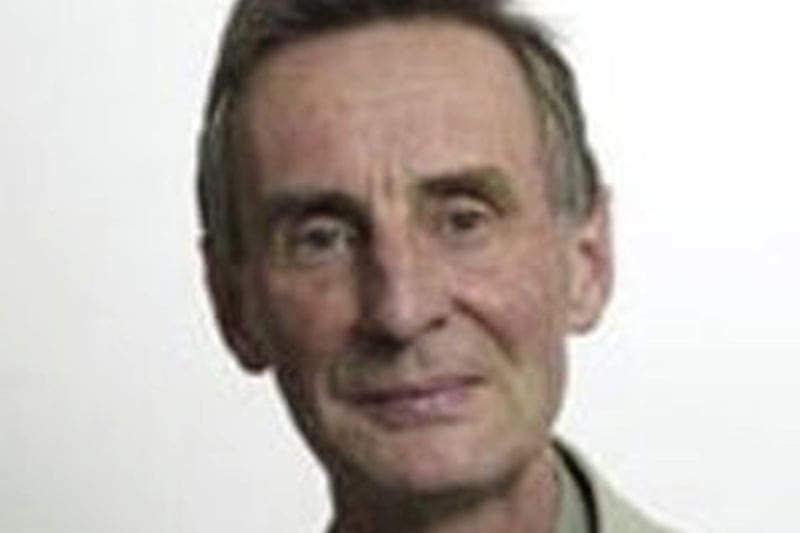PROFESSOR Godfrey Boyle was a UK pioneer and internationally recognised authority in renewable energy.
Born in Belfast to a Catholic father, Kevin, and Presbyterian mother, Phyllis, he was educated at St Malachy’s College and enrolled for an electrical engineering degree at Queen’s University at a time when Northern Ireland was about to be convulsed by the civil rights movement.
But electrical engineering proved to be too limited for Godfrey’s eclectic mind and he was soon immersed in a range of radical activities.
With student friends he ran societies and published ‘alternative’ scientific and environmental magazines.
Godfrey was a firm supporter of the civil rights demands for equality and part of a small group of ‘techies’ who ran a student pirate radio station that beamed out news of demonstrations and protests, as well as a diet of gossip, scandals and satire.
The station proved a thorn in the side of the Stormont Unionist establishment, with questions in the London House of Commons, but efforts by the RUC and Post Office engineers to close it were thwarted by a ‘cat and mouse’ strategy of moving the transmitter.
A siege of the Students' Union by police failed to find it, before it was eventually tracked to a telephone kiosk in Lennoxvale on the Malone Road. Godfrey soon had it up and running again.
He stood for election as deputy president of the Students' Union and he and his running mate for president, Fred Taggart, were elected on a progressive and civil rights ticket.
However, disaster struck when Godfrey failed his electrical engineering finals and was ineligible for the sabbatical year.
As always, he was philosophical. "I’m just not meant to be an electrical engineer," he opined to Taggart.
"It would have helped, if you had attended the odd lecture!" was the response.
The vacancy was filled by Nick Ross, the BBC TV personality.
Godfrey decided to leave Belfast and move to England where he got a job as a journalist on Electronics Weekly, met his wife Sally, a graphic designer, and gained a professional qualification from the Institute of Electrical Engineers.
But his real interests lay elsewhere, which led him in the early 1970s to found Undercurrents, a magazine of ‘radical science and people’s technology’. A group formed around Godfrey to edit the contents, with Sally doing the graphics.
'Undies' became highly successful, with a circulation of 7,000, and inspired a wide variety of sustainable energy, housing, transport and community projects throughout the 1970s and 1980s. In 1972 he led the Undercurrents team to the first UN Conference on the Human Environment in Stockholm where they organised an exhibition on ‘Alternative Technologies’.
In 1975 Godfrey published Living on the Sun. This book advanced the then revolutionary idea that industrial countries could wean themselves off fossil fuels and power themselves by renewable energy, anticipating mainstream thinking by some 40 years.
A high point was the book Radical Technology, which he edited with Peter Harper in 1975. A truly pioneering book, it became best known for the inspired series of ‘Visions’, drawings created by the anarchist artist Cliff Harper.
The following year, Godfrey – against opposition from some traditionally minded academics – was appointed as a lecturer in the Design Group at the Open University.

He established the Alternative Technology Group, which later became the Energy and Environment Research Unit.
At its height it included 18 academics and researchers and attracted many grants and distinguished visitors.
Under Godfrey’s leadership the group conducted ground-breaking renewable energy projects, including innovative wind turbines, solar energy and early electric cycles.
Probably his greatest achievement was leading the development of Open University courses on renewable energy, which included editing and writing a series of energy textbooks which are widely read throughout the world.
In recognition of his pioneering teaching and research, in 2009 he was promoted to Professor of Renewable Energy – probably the only UK professor without a degree.
On his retirement in 2011 he was given the title of Emeritus Professor. I witnessed him then in our shared office continuing to write, research and contribute to Open University courses with undiminished enthusiasm.
Among numerous activities, Godfrey was instrumental in establishing the Rainbow Housing Cooperative in Milton Keynes in the 1980s, which is still successful today. He also played a key role in trying to establish Green Town as an eco-community in Milton Keynes - another example of an initiative that predates many current eco-village projects.
Moving to London, he and Fred Taggart developed plans to adapt the local Carnegie Library as a renewable energy community building.

In later years he became a self-deprecating elder statesman. He enjoyed living in London and on his partner Romy Fraser’s Devon educational organic farm, where they welcomed a wide variety of people with innovative and alternative ideas.
In November 2018 he became seriously ill, but was able to welcome a constant stream of visiting friends and relations to his hospital bed. This support during his final months was a testament to how much this environmental pioneer was loved.
Professor Godfrey Andrew Boyle died aged 74 on July 8. He is survived by his ex-wife, Sally, their daughters Holly and Katie, and four grandchildren.
Robin Roy, Emeritus Professor of Design and Environment, The Open University



